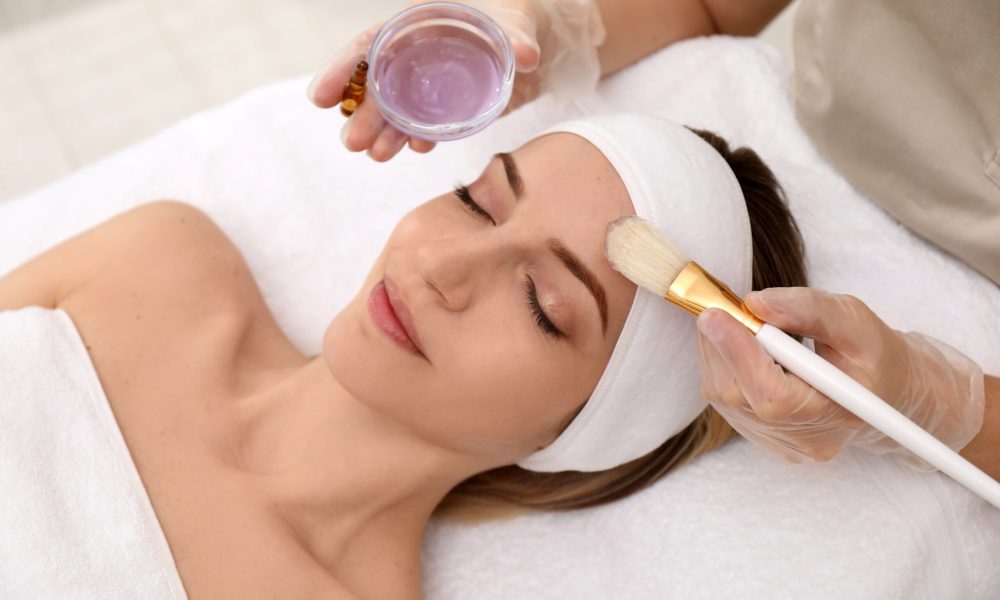Acne scars are a common skin concern that can affect anyone who has experienced acne. These scars result from the healing process of inflamed acne blemishes. When a breakout penetrates the skin deeply, it damages the skin and the tissue beneath it. As the acne clears, the body attempts to repair this damage by producing collagen, but if the body produces too little or too much collagen, a scar will form. Understanding the causes and the available treatments for acne scars can help you achieve smooth, clear skin.
Understanding Acne Scars
Acne scars are a byproduct of the body’s natural healing process. When acne blemishes burst and cause skin inflammation, the healing process can leave behind different types of scars. These scars can be categorized as atrophic or hypertrophic. Atrophic scars are more common and appear as depressions or pits in the skin, while hypertrophic scars are raised and can feel lumpy.
Types of Acne Scars
- Atrophic Scars: These are the most common type of acne scars and include ice pick scars, boxcar scars, and rolling scars. Ice pick scars are deep and narrow, boxcar scars are broad with sharp edges, and rolling scars have a wave-like appearance.
- Hypertrophic Scars: These are raised scars that occur when the body produces too much collagen during the healing process. They can be red and thick and sometimes itch or feel tender.
Causes of Acne Scars
Understanding the causes of acne scars can help in preventing them. Here are some primary factors that contribute to the formation of acne scars:
Inflammation
Severe inflammation in acne lesions can destroy skin tissue, leading to scars. The deeper the inflammation, the more likely it is to cause significant scarring. Nodules and cysts, which are severe forms of acne, often lead to scarring due to their deep, inflamed nature.
Delayed Treatment
Not treating acne promptly or effectively can lead to severe breakouts that damage the skin. Quick and effective treatment of acne can reduce the risk of scarring.
Squeezing or Picking
Picking at acne lesions can damage the skin and underlying tissues, leading to scars. It can also introduce bacteria to the skin, causing further inflammation and potential scarring.
Genetics
Genetics play a significant role in how your skin responds to acne. If your parents experienced severe acne scars, you might be more prone to them as well.
Acne Scar Treatments in Singapore
Several non-surgical treatments are available for acne scars in Singapore. These treatments focus on reducing the appearance of scars and improving skin texture. Here are some of the most effective options:
Laser Treatments
Laser treatments are a popular choice for acne scar treatments in Singapore. They work by removing the top layer of skin or stimulating the production of new skin cells. Fractional CO2 laser and Pico laser are commonly used. The Fractional CO2 laser targets deeper layers of the skin, promoting collagen production, while the Pico laser uses ultra-short pulses to break down scar tissue and encourage skin regeneration.
Microneedling
Microneedling involves using fine needles to create micro-injuries in the skin, stimulating collagen production and promoting healing. This treatment is effective for reducing the appearance of atrophic scars and improving overall skin texture. Combining microneedling with radiofrequency can enhance results by delivering heat energy to deeper layers of the skin.
Chemical Peels
Chemical peels use a solution to remove the top layer of skin, revealing smoother, less scarred skin underneath. Different types of peels, such as glycolic acid or salicylic acid peels, can be used depending on the severity of the scars. Chemical peels can also help reduce pigmentation and improve skin tone.
Dermal Fillers
Dermal fillers can be injected into atrophic scars to raise them to the level of the surrounding skin. Hyaluronic acid fillers are commonly used for this purpose. The effects are temporary, lasting from six months to a year, but they provide immediate improvement in the appearance of scars.
Topical Treatments
Topical treatments containing retinoids, alpha hydroxy acids (AHAs), or beta hydroxy acids (BHAs) can help improve the texture and appearance of acne scars over time. These ingredients promote cell turnover and collagen production, gradually reducing the visibility of scars.
What to Remember
When considering acne scar treatments in Singapore, it’s essential to consult with a qualified dermatologist to determine the most suitable treatment for your skin type and scar severity. Each treatment has its benefits and potential side effects, so professional guidance is crucial.
Consistency is Key
Acne scar treatments often require multiple sessions for optimal results. Patience and consistency are vital to achieving smoother, clearer skin. Follow your dermatologist’s recommendations and maintain a proper skincare routine to support the healing process.
Sun Protection
Protecting your skin from the sun is crucial, especially after undergoing acne scar treatments. Sun exposure can worsen scars and pigmentation. Use a broad-spectrum sunscreen with an SPF of 30 or higher daily, and reapply as needed.
Healthy Lifestyle
Maintaining a healthy lifestyle can support your skin’s healing process. Eat a balanced diet rich in vitamins and antioxidants, stay hydrated, and avoid smoking and excessive alcohol consumption. These habits can promote better skin health and enhance the effectiveness of acne scar treatments.
Acne scar treatments in Singapore offer various non-surgical options to help you achieve smooth, clear skin. By understanding the causes of acne scars and the available treatments, you can make informed decisions and work towards a complexion you’re confident in.

